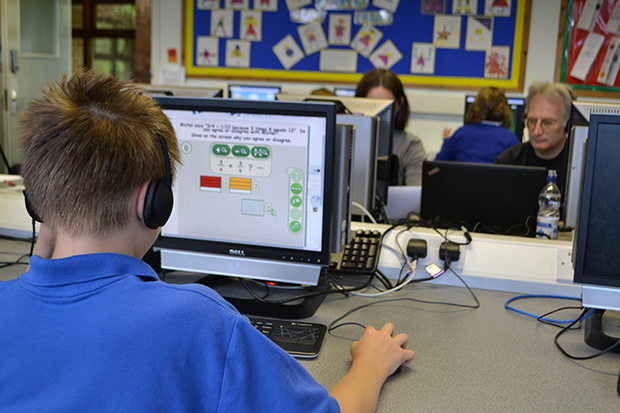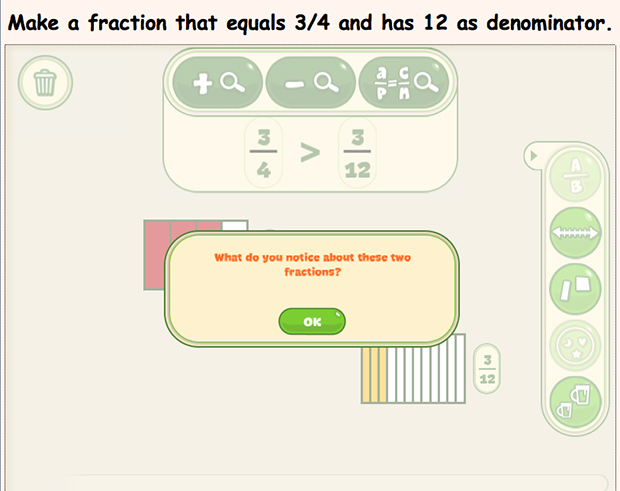What have we been working on?
At Birkbeck College, we are currently implementing the task-independent support. In collaboration with the IOE, we have analysed the Wizard-of-Oz studies, using these results to inform the design of the task-independent support.

What did the results show?
Speech recognition from our project partner, Sail, is used to provide feedback based on mathematics vocabulary and the affective state of the student. The results from the Wizard-of-Oz studies showed that reminding students to use specific mathematics vocabulary might help them to think through the problem [1].
Based on these results, the task-independent support detects if a student uses mathematics vocabulary or not. If not, he or she will be reminded to try to use the vocabulary, for example being asked to describe how they have been trying to solve the task.

We are also working on detecting the student’s affective states, based on their speech, as well as their interaction with the learning environment. This information is then used to tailor the feedback. Our results from the Wizard-of-Oz studies have shown that for particular negative affective states, traditional problem solving support is not very effective [2].
However, asking students to verbally express their thoughts or reflect upon their task can enhance the learning experience, especially if students were in a negative affective state. The task-independent support aims to enhance the learning experience by, for example, asking students to reflect on what they are doing when they are in a negative state.
What is the next step?
The next step, once we have finished the implementation of the task-independent support, is to formally evaluate it with children in a natural classroom setting.
We would love to hear your thoughts on the task-independent support. Do you challenge your students to verbally express their thoughts or reflect upon the task in hand? If yes, how has this impacted their development?
References:
[1] Mavrikis, M., Grawemeyer, B., Hansen, A., Gutierrez-Santos, S. (2014) Exploring the Potential of Speech Recognition to Support Problem Solving and Reflection- Wizards Go to School in the Elementary Maths Classroom. In Proceedings of the 9th European Conference on Technology Enhanced Learning, EC-TEL 2014.
[2] Grawemeyer, B., Mavrikis, M., Gutierrez-Santos, S., Hansen, A. (2014). Interventions During Student Multimodal Learning Activities: which, and why?. Proceedings of FFMI workshop at EDM.


